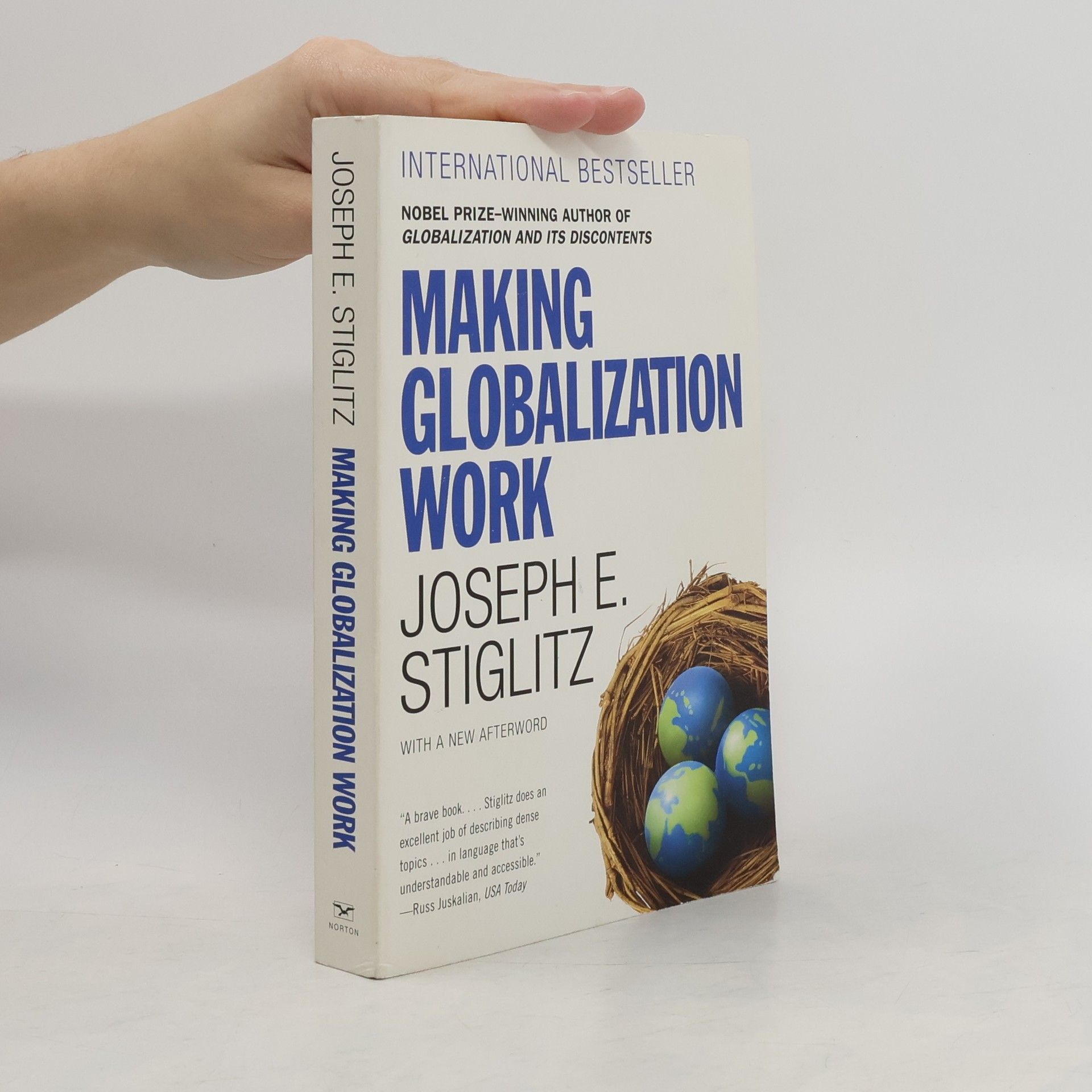Parameter
Kategorien
Mehr zum Buch
Why isn't globalization benefiting as many people as it should? Joe Stiglitz shows us that things can change and that an optimistic world can exist where globalization really does work. Stiglitz examines how change has occurred rapidly over the past four years, proposing solutions and looking to the future. He puts forward radical new ways of dealing with the crippling indebtedness of developing countries, a new system of global reserves to overcome international financial instability and a new framework, combining economic incentives and principles of equity, for dealing with the greatest threat to our planet, global warming - one which is more likely to be accepted both by the US and the developing world than previous proposals. He argues convincingly for the reform of global institutions such as the UN, the IMF and the World Bank to make them truly capable of responding to the problems of our age and shows why treating developing countries more fairly is not only morally right, but ultimately will be to the benefit of the developed countries as well.
Buchkauf
Making globalization work, Joseph E. Stiglitz
- Sprache
- Erscheinungsdatum
- 2007
- product-detail.submit-box.info.binding
- (Paperback),
- Buchzustand
- Gebraucht - Gut
- Preis
- 1,92 €inkl. MwSt.
Lieferung
Zahlungsmethoden
Feedback senden
- Titel
- Making globalization work
- Sprache
- Englisch
- Autor*innen
- Joseph E. Stiglitz
- Verlag
- W.W. Norton & Company
- Erscheinungsdatum
- 2007
- Einband
- Paperback
- ISBN10
- 0393330281
- ISBN13
- 9780393330281
- Kategorie
- Sozialwissenschaften
- Beschreibung
- Why isn't globalization benefiting as many people as it should? Joe Stiglitz shows us that things can change and that an optimistic world can exist where globalization really does work. Stiglitz examines how change has occurred rapidly over the past four years, proposing solutions and looking to the future. He puts forward radical new ways of dealing with the crippling indebtedness of developing countries, a new system of global reserves to overcome international financial instability and a new framework, combining economic incentives and principles of equity, for dealing with the greatest threat to our planet, global warming - one which is more likely to be accepted both by the US and the developing world than previous proposals. He argues convincingly for the reform of global institutions such as the UN, the IMF and the World Bank to make them truly capable of responding to the problems of our age and shows why treating developing countries more fairly is not only morally right, but ultimately will be to the benefit of the developed countries as well.





